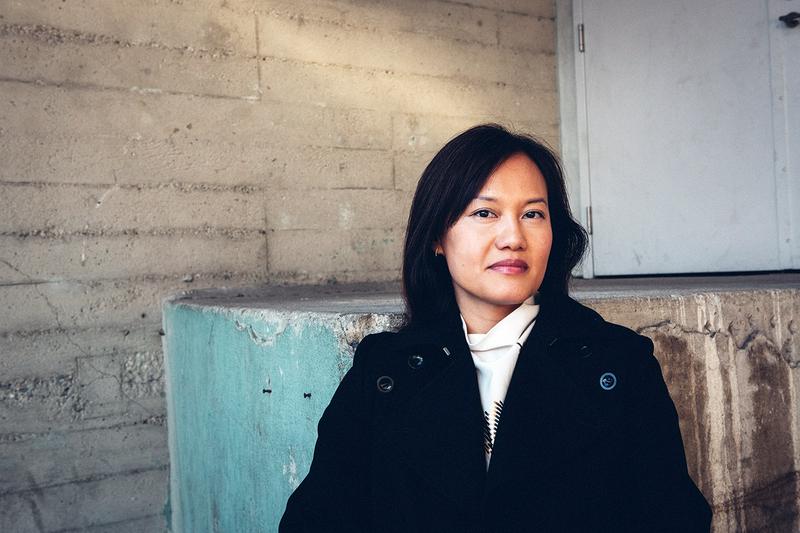Editor’s note: Eunice Lau, director of "A-Town Boyz," a film about the sons of Asian immigrants who are drawn to gang life as they fight against racism and find love and acceptance in the streets of Atlanta, speaks about the struggles of Asian Americans, racism, and church outreach to minorities in an exclusive interview with China Christian Daily.
China Christian Daily: Can you first introduce yourself and this documentary, “A-Town Boyz,” to our readers?
Eunice Lau: Born and raised in Singapore, I identify myself as Chinese because my great-grandparents are from southern China. I’ve been living in the United States as a filmmaker since about 14 years ago. I came to New York for graduate studies, and the city has become my home.
This documentary, “A Town Boyz,” was conceptualized when I was a graduate student. I met a Korean American actress who came to New York from Atlanta to get away from a gang she joined and later quit due to life struggles. That made me think about the struggles Asian American youth are facing and the source of their anger, which prompted them to join gangs to find themselves. It also reminded me of my journey: confused about my own identity. After graduation, I went to China to teach English to find my identity as a descendant of Chinese, yet we don’t speak Mandarin as our first language. So my film tells the stories of how the characters navigated between their Asian and American identities.
Additionally, I want to show how the parents overcame many obstacles before achieving success and stability in the United States, which is something that ordinary Americans do not see. We just assume Asian people don’t need any help. So this documentary is a way of capturing the struggle of Asian Americans in the U.S.
China Christian Daily: What is the current landscape of Asian Americans? What about the Chinese among the Asian Americans, particularly their struggles?
Eunice Lau: Historically speaking, it has never been easy for Asian Americans, especially the Chinese and the Japanese. The Chinese Exclusion Act was first enacted in 1882 and only ended in 1943. Chinese immigrants were blamed for all the economic problems in the country, so racism or discrimination against Chinese has been the story in this country for a long time. When World War II broke out, the Japanese Americans born here would be put in this camp because Japan warred against the U.S.
Due to the accusation that the virus started in China, we have heard stories of people who have faced discrimination. We, especially the Chinese, came out in rallies against such hate, which was empowering. Adversities teach us how to come together and how to speak up.
In terms of the stereotypes, we are still dealing with them. Stories like the documentary enable us to share our stories with mainstream non-Asians, so this breaks down whatever assumption they have about us. In the film Everything Everywhere All at Once, the role Michelle Yeoh plays touches many hearts with her immigrant family story. The struggle of the Asian community resonates with the immigrant community, which allows us to recognize each other’s pain, suffering, and joy.
China Christian Daily: What can the Christian faith offer them?
Eunice Lau: Christianity plays a strong role in the stories of all the characters in the film. Through all the struggles, the characters still hold on to who they are and their family, and they are reminded of love because of their faith and their relationship with God. When the two characters, Harrison Kim and Jamie Long, were wrongfully convicted for a crime that they did not commit, they had to take a plea bargain and be put into prison due to a lack of money. What helped them through the difficult time was their faith. Jamie came out of prison stronger in his faith. Even though you may call them gangsters, I think the fact remains that they are Christians, and their relationship with God is personal to them.
China Christian Daily: Share with us some moving stories inside the documentary.
Eunice Lau: There is the character of a Korean immigrant who came to the United States at age 20. While she was trained to be a dentist in Korea, she was helping her parents-in-law run a famous Korean restaurant in Atlanta. As a young mother, she worked hard. Nobody had ever asked her suffering story until we turned up with the camera. She broke down in tears. Many immigrants went through that, and nobody knew about it.
One of the main characters, Harrison Kim, is a young, aspiring rap artist. About three years into filming, he suddenly shared with me that his unborn son had passed away. We were both in tears. It was a complicated birth, but it made him realize how cold the world was. At that moment, I could understand how he felt, as someone who had just lost his flesh and blood.
China Christian Daily: What has the church there done to reach these Asian minorities?
Eunice Lau: The church is a big part of the community, especially for the Korean, Cambodian, and Chinese communities. Whenever they have problems, the church community rallies around the family, offering fundraising efforts and material, emotional, and spiritual support. I witnessed how pastors are always trying to guide the youth in question in a center for pan-Asian communities, which started with a Korean church. The youth are put in a safe space while their parents are out working. Churches in the Asian community also pay for the treatments.
China Christian Daily: What do you think is the solution to racism?
Eunice Lau: The first thing to do is to drop all stereotypes we have perceived of others. People should stop judging what being Asian is. We Asians will have to stop racism against other minorities. The other thing is to remember the values of Christianity: be kind to your neighbors, be considerate, and always have compassion. If we all lead the Christian way, we can find the solution to racism and focus on love.
China Christian Daily: Do you have any words for Christians in China?
Eunice Lau: China always has a very special place in my heart. Every time I go home to China, it does feel like I’m coming home. China has been such a source of social pride for what you have achieved in such a short period of time.
For the Chinese immigrating overseas, my word of advice is to be kind to your children and be patient with them. It is not easy for them to navigate while being born in a foreign country and away from home. Otherwise, it can cause intergenerational trauma. They may not choose the path their parents don’t dream of, but there should be constant negotiation between parents and children.













